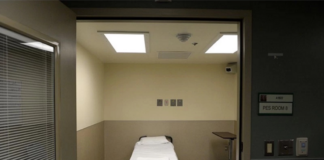Tag: conduct disorder
Multisystemic Therapy No More Effective than Standard Care for Antisocial Behavior
Study counters previous evidence supporting multisystemic therapy, finding adolescents are just as likely to have out-of-home placements when receiving multisystemic therapy versus management as usual.
Mental Illness Vs. “Bad” Behavior
Allen Frances has claimed that "It's a great mistake to confuse bad behavior with mental illness." Yet two of the so-called mental illnesses (conduct disorder and antisocial personality disorder) consist essentially of "bad" behavior, while in at least six others, "bad" behavior is an integral part of the problem.
The Helping Room
Every culture has its share of individuals who break down in bewilderment. People who hallucinate, behave beyond norms, seek to die, think in strange ways.
The Mental Health Reform Act of 2016 (SB 2680) Would Be...
There is indeed a crisis in the mental health business. The crisis derives from psychiatry's spurious and self-serving premise that all significant problems of thinking, feeling, and/or behaving are brain illnesses that are correctable by psychiatric drugs.
Dear Boston Globe, Part IV: A Taste of Your Own Medicine
The Boston Globe paints a picture (in the vivid way that they so love to do) that pins the system’s decline primarily on budgetary issues, but there is more than one way for a system to be ‘broken.’ In fact, where the Globe goes most wrong in their latest piece, ‘Community Care,’ is in their failure to adequately recognize that the system has always been broken in one way or another in this country.
A Diluted Murphy Bill Clears the House and Goes to the...
Organized psychiatry, committed irrevocably and wholeheartedly to drug pushing and to their corrupt and corrupting relationship with pharma, simply will not countenance the fact that their primary product is fundamentally flawed and destructive. So they hire a PR company; they fund and lobby politicians; they parrot slogans; and they encourage one another to ever-increasing heights of self-congratulation. But they will not commission a definitive study to clarify and assess the scale of this problem once and for all. And the reason for this inaction is because they know that it would be bad for business. It would "cause a lot of people to stop taking their medications."
The Murphy Bill, HR 2646 — a Heinous Piece of Legislation...
The National Coalition for Mental Health Recovery is calling upon all people of like minds, who care about individuals who need mental health services, to ACT. It is urgent. Please call your representative in the House of Representatives to vigorously oppose HR 2646 on Tuesday, July 5, 2016. And, call your Senator to insist that the Senate reject any amendments or changes to mental health legislation from the House by Friday, July 8, 2016. For more information about this Call to Action, please click here.
In the Matter of the Hospitalization of Mark V
Today, July 1, 2016, the Alaska Supreme Court issued its Opinion in In the Matter of the Hospitalization of Mark V. What strikes me the most about the case is that Mark's expressing the view that a psychiatric drug he was being required to take is poison, that it had side effects related to his sexual performance, and that it was killing him were all cited as proving Mark was delusional. As readers of this site know, these drugs can quite reasonably be characterized as poison, they do cause sexual dysfunction, and they are quite lethal to many many people, shortening lives on average by 25 years for those in the public mental health system, such as Mark.
Victim Blaming: Childhood Trauma, Mental Illness & Diagnostic Distractions?
Why, despite the fact that the vast majority of people diagnosed with a mental illness have suffered from some form of childhood trauma, is it still so difficult to talk about? Why, despite the enormous amount of research about the impact of trauma on the brain and subsequent effect on behaviour, does there seem to be such an extraordinary refusal for the implication of this research to change attitudes towards those who are mentally ill? Why, when our program and others like it have shown people can heal from the effects of trauma, are so many people left with the self-blame and the feeling they will never get better that my colleague writes about below?
Societies With Little Coercion Have Little Mental Illness
Coercion — the use of physical, legal, chemical, psychological, financial, and other forces to gain compliance — is intrinsic to our society’s employment, schooling, and parenting, but it isn’t to less “civilized” societies. Coercion fuels miserable marriages, unhappy families, and what we today call mental illness. Psychiatrist E. Fuller Torrey, in Schizophrenia and Civilization, states “Schizophrenia appears to be a disease of civilization.” But Torrey is a strong advocate for coercive treatments, including forced medication — even though his own research shows a stronger relationship between severe mental illness and European-American civilization than with hypothesized biochemical agents that have never been found. Still, he has he not considered the toxic effects of coercion.













